WHILE millions of British schoolchildren returned to the classroom this September after six months at home, hundreds of thousands of chairs still sit empty.
They show the harrowing reality the Covid pandemic has wreaked on our nation’s children – with some vulnerable youngsters having vanished from schools altogether.
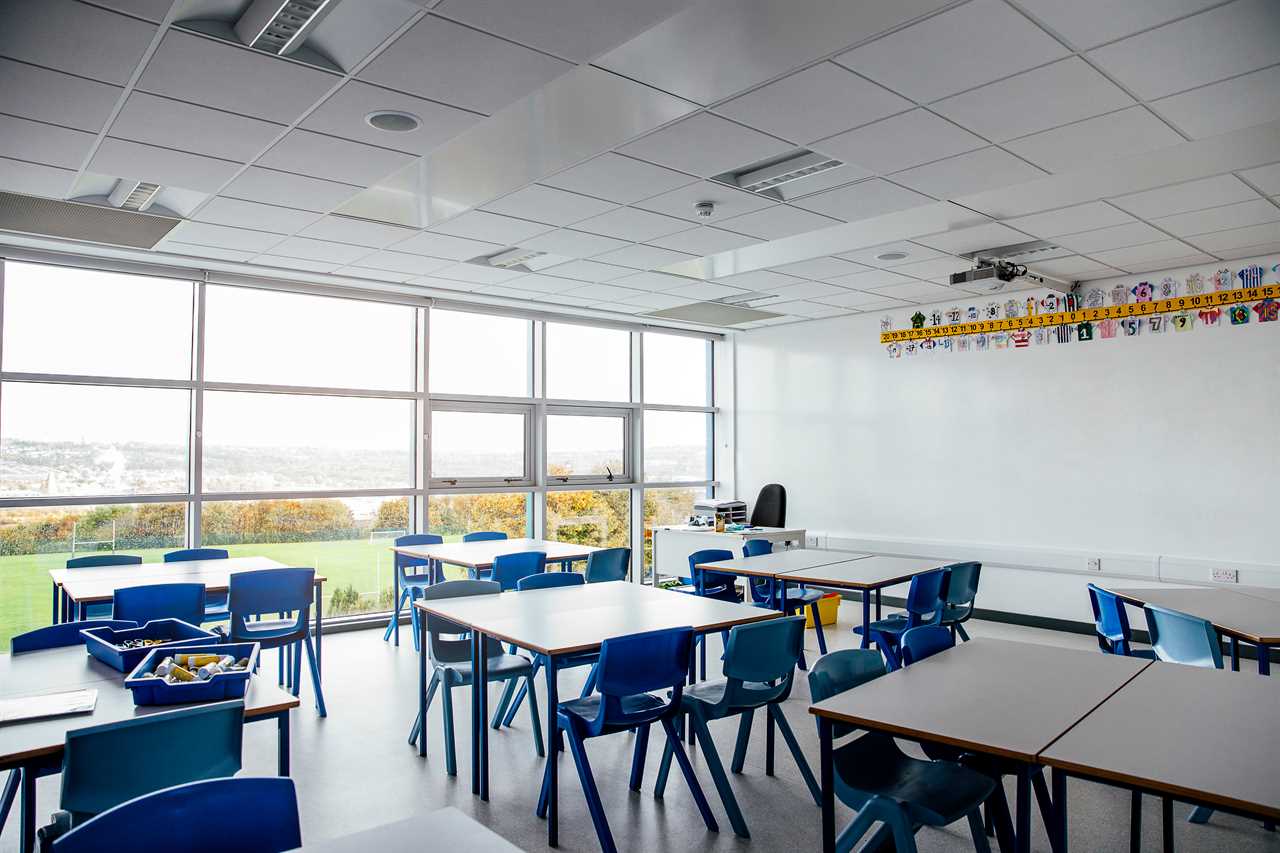
Hundreds of thousands of children are missing from British classrooms amid the Covid pandemic
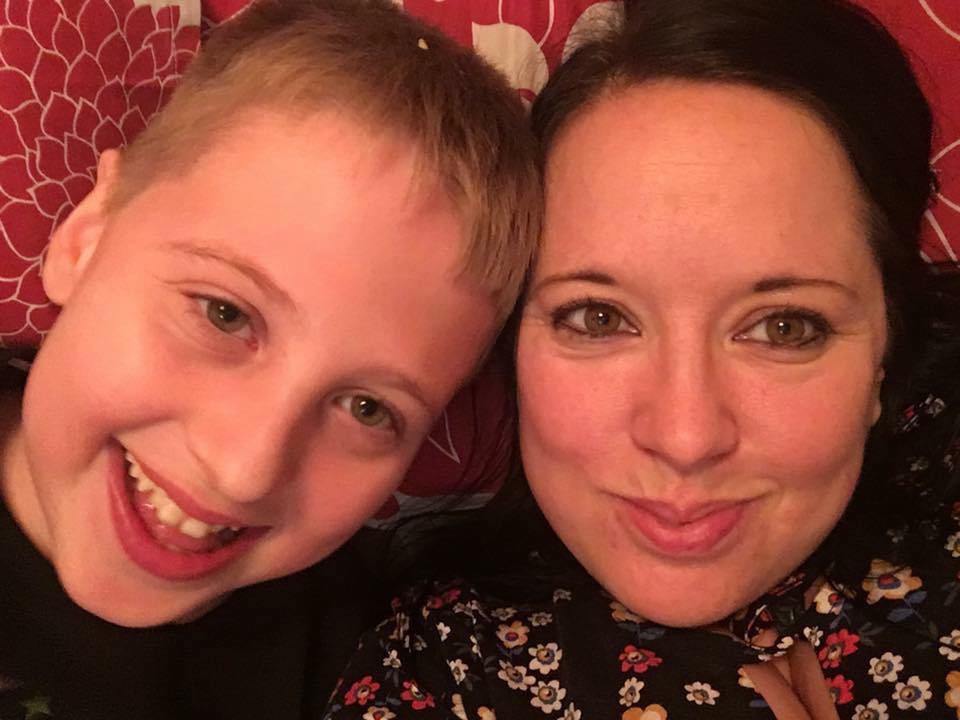
Some children, including those with special educational needs, did little or no work during the first lockdown. Above, mum Nicola Robinson admits home-schooling her autistic son Mike, 16, was challenging
Though many pupils are temporarily missing from the classroom due to self-isolation or coronavirus infection, a hidden generation of children are in danger of becoming ‘lost’ for good.
While some parents are keeping their kids at home over health fears – or in some worrying cases, to avoid scrutiny by keeping their children out of sight – fed-up teens are choosing to drop out of education altogether.
One 17-year-old said: “I’ve just given up, I used to love working, I just struggle to motivate myself, what’s the point?”
Groomed by drug gangs
Some of these youngsters have now swapped lessons for shuttling Class A drugs across the UK after being lured in by ‘county lines’ gangs. Others face domestic or sexual abuse, neglect, or getting embroiled in knife crime.
“I am getting more calls this year from parents whose sons or daughters have been caught up in ‘county lines’ scenarios which is very alarming,” says Ismael Lea South, director of The Salam Project, a group of youth workers helping young people in London and Manchester.
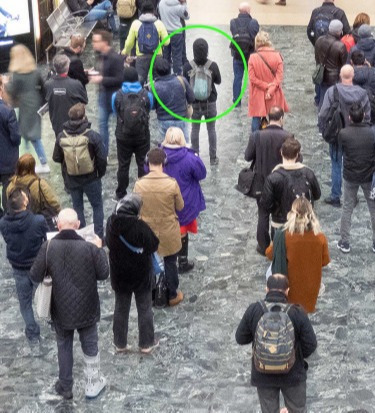
There are fears some ‘missing’ youngsters are being exploited by drug gangs. Above, a county lines ‘slave’ mingles with commuters on their way to deal Class A drugs in the suburbs
876k children off school
Latest official figures show attendance in state-funded schools in England has dropped to only 83 per cent – down from 90% in October – with up to 876,000 pupils off school for Covid-related reasons on just one day.
And in a report today, Ofsted’s chief inspector Amanda Spielman warns that thousands of the country’s most vulnerable kids, and their families, have been “cut adrift” and are struggling to cope amid the pandemic.
It’s a tragedy that Anne Longfield, Children’s Commissioner for England, has also highlighted: “Even before the lockdown, one in 25 teenagers in England were falling through gaps in the school or social services systems.
“I am particularly worried that some of the most vulnerable children are in danger of dropping out of school or being excluded, slipping out of sight, getting into trouble, and then at risk of being groomed by gangs and criminals.”

Anne Longfield, Children’s Commissioner for England, fears some of the country’s most vulnerable children are in danger of ‘slipping out of sight’
With no education, endless time on their hands, and ‘glamorous’ offers of cash and new clothes, some youngsters are dragged into a life of crime.
“Missing school can be a sign that children are being subjected to horrific exploitation, which can involve county lines drug dealing,” says Becky Fedia, national programme manager for The Children’s Society’s National Disrupting Exploitation programme.
“Some of the schools we work with are concerned that this may explain why some of their pupils haven’t returned.
“Criminals groom children with offers of easy cash, drugs, alcohol, friendships and the false promise of a life of a glamour.
“Then, once they have reeled them in, they coerce these children using terrifying threats, violence and demands to repay ‘debts’.”
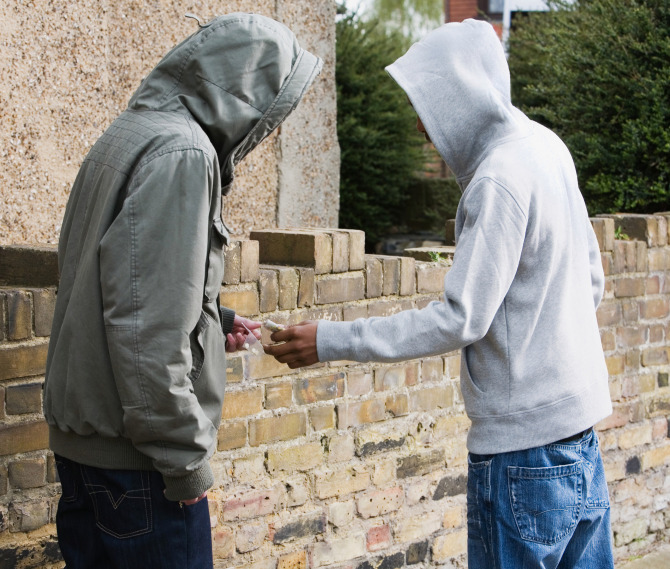
With no education and endless time on their hands, some youngsters are dragged into a life of crime
Deadly consequences
Yet the consequences of this exploitation can be lethal.
Teenager Jacob, from the quaint market town of Banbury, Oxfordshire, was just 13 when he was lured in by evil drug barons. He was later tragically found dead on his bed.
Last year, Jacob’s grieving mum Karla told Sun Online she believes her “funny” and “intelligent” boy took his own life while secretly suffering utter turmoil over his exploitation.
“I definitely blame county lines – 100 per cent,” she exclusively told us.
“It doesn’t matter how good a parent you are, or whether you’re a single mum, whether you’re married, whatever, if they get hold of your kid there’s nothing you can do about it.”
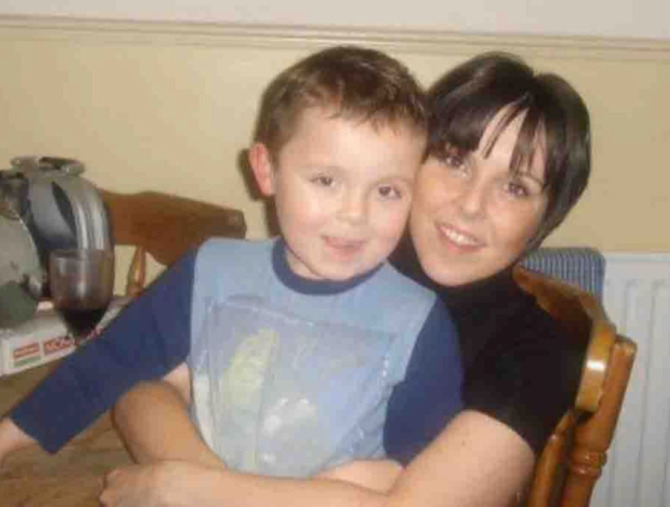
Karla’s son Jacob, from Oxfordshire, was just 13 when he was lured in by evil drug barons. He was later tragically found dead on his bed
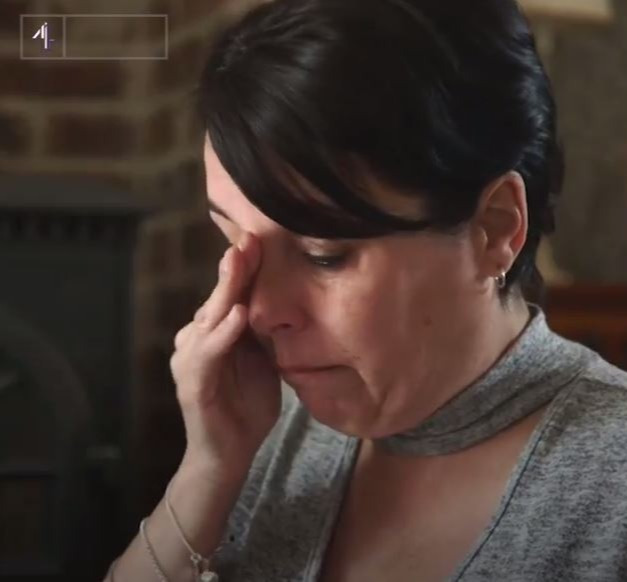
Karla, who featured in the Channel 4 documentary Britain’s Child Drug Runners, said she believes her boy took his own life while secretly suffering utter turmoil over his exploitation
Exploited by online sex beasts
Away from the classroom, children are also at risk of being targeted by online sex beasts.
Since the first Covid lockdown, the NSPCC helpline has seen a 60 per cent spike in contacts from people concerned about children suffering online sexual abuse – rising from 117 per month to 187.
One horrified mum told the helpline: “I have noticed my 12-year-old daughter has been constantly playing an online game called Rec Room.
“We decided to check her computer and found sexualised messages and images which were sent between my child and two unknown adults…
“[They] persuaded my child to visit pornographic sites and then message them about what she had seen.”
Another 12-year-old girl told Childline she had received “d*** pics” from men after signing up to a kids’ online chat room. “I haven’t told anyone because if my parents found out they’d both freak out,” she added.

Young children have been targeted by online sex beasts during the pandemic
Unlike Covid-19 itself, the education crisis isn’t new.
The Local Government Association (LGA) has warned that more than a million children in England could be missing out on a formal full-time education, even before the pandemic.
A recent report by the organisation estimates 282,000 youngsters – around two per cent of the school-age population – may have missed out on one in 2018/19, though this figure could be as high as 1.14million.
Teachers’ desperate calls
However, the virus crisis has exacerbated many issues.
While teachers have spent hours phoning ‘missing’ pupils’ families – and even doing home visits to find them – exhausted parents across the UK have given up trying to get their child to go to school.
To avoid truancy fines, some are de-registering their kids. According to the LGA, some councils reported a more than 200 per cent spike in home education registrations in September and October compared to last year.
“Parents are just feeling they have no power or even the strength to be able to make their child go to school,” says former headteacher Deborah Barnett, now Education Policy Lead for Transforming Lives for Good (TLG), which runs 12 alternative provision (AP) schools across the country.
“Rather than get the stress of it, they keep them at home.”

Former TLG headteacher Deborah Barnett, pictured, says some exhausted parents feel they have no power or strength to make their child go to school
Ever-growing exclusions of struggling pupils haven’t helped the situation.
Teachers tell us some traumatised children have been kicked out of school for ‘bad behaviour’ as early as the first week back. And with Covid sparking a raft of mental health issues among kids and adults alike, it’s feared this number will only soar.
“We’re hearing stories of a lot of kids being excluded as they return to school – as early as the first week,” Deborah tells us.
“And there’s a growing concern across the education sector that we’re going to continue to see a rise in exclusions – and possibly even more as a result of the Covid situation.
“It’s a big issue right now.”
London-based Deborah warns that schoolchildren’s responses to coronavirus-induced stress may be misinterpreted by staff as “bad behaviour” rather than the result of trauma.
“This manifests as negative behaviour in the classroom and teachers [are] maybe not understanding this is traumatic – it’s not bad behaviour, it’s trauma,” she adds.
“This is a young person trying to communicate: ‘I’m stressed, I need help’.”
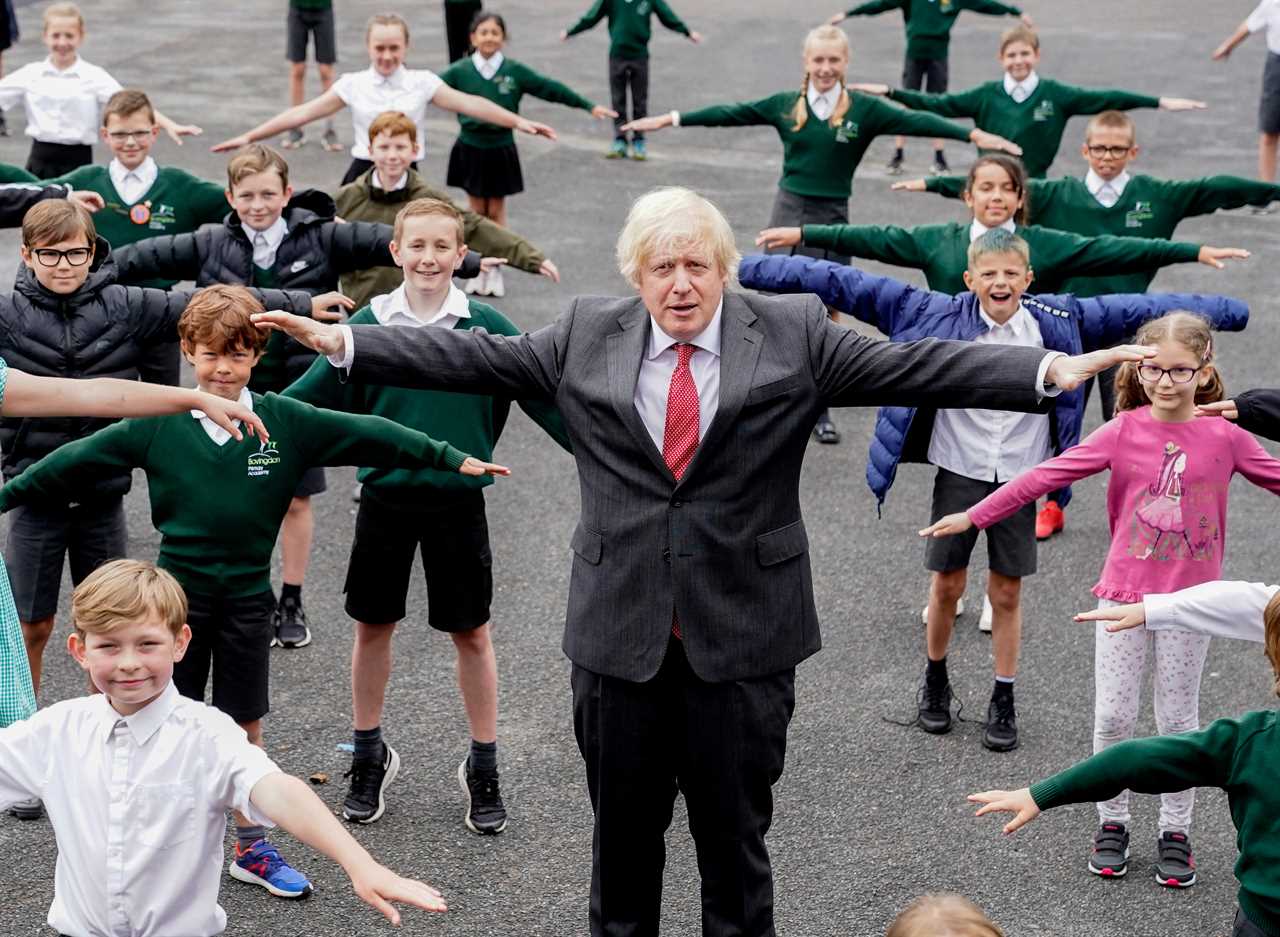
Prime Minister Boris Johnson is pictured with primary school pupils in June this year, three months after schools
across the UK were closed
Covid fuelling exclusions
Latest official figures show permanent exclusions in England have soared by 59 per cent in five years – from 4,950 in 2013/14 to 7,894 in 2018/19 – with the most common reason being “persistent disruptive behaviour”.
And though this year’s figures have yet to be released, Robert Halfon MP, Chair of the Commons Education Committee, says of the nation’s “huge” exclusions problem: “Without a doubt, Covid has made it worse.”
At least 78 per cent of permanent exclusions are issued to those with special educational needs (SEN), according to Mr Halfon. And this may be especially the case at the moment, as children with autism and other conditions struggle to adjust to new Covid-safe routines.
“Lockdown has turned everybody’s lives upside down and this is especially true for autistic children and young people, with many receiving less support from schools and experiencing increased anxiety, stress, and isolation,” says Jolanta Lasota, chief executive of Ambitious about Autism.

Robert Halfon MP, Chair of the Commons Education Committee, says Covid has made the nation’s already ‘huge’ exclusions problem even worse
‘My autistic boy can’t cope with covidiots’
For autistic schoolboy Mike Robinson, 16, the influx of covidiots on our streets, parks and pubs this summer didn’t just pose a physical health risk – it also sent his stress levels through the roof.
“We nearly ended up moving house because it was stressing him out that much that there were so many people at a local pub,” Mike’s mum Nicola, 42, tells Sun Online.
“He gets quite frustrated and stressed out because there are a lot of people not social distancing, going out in big groups or not wearing their face masks correctly.
“He really struggles with adults not listening to the rules.”
In her annual report, published today, Ofsted chief inspector Ms Spielman says children with SEN are “hidden victims” of the pandemic, with many falling further behind their schoolmates.
While schools were open for vulnerable youngsters during the first lockdown, attendance for special needs children was low. For some parents, the risk of contracting the virus caused a lot of anxiety.

Teenager Mike, from Hull, has struggled to cope with adults ignoring the government’s coronavirus rules
However, losing the extra support provided by regular classes and the absence of a teacher to explain work meant many of these children fell behind, according to Ms Spielman’s report.
And Nicola, from Hull, East Yorkshire, tells us she’s spoken to families whose special needs children have refused point-blank to do any classwork at home during the pandemic.
“With autism it’s very black and white. School is school, home is home,” explains the mum, who is co-founder of the Hull charity Aim Higher. “Trying to get that work balance is not working for a lot of children.”
‘Off-rolled’ from afterschool club
For Nicola, her first experience of home-schooling Mike came after he was ‘off-rolled’ (where difficult or struggling kids are removed from the school register to boost results) while in mainstream education.
When the youngster was just six, Nicola claims she was asked to pick him up from a privately-run afterschool club because Ofsted, the government body which inspects education services, was visiting.

This drawing, by creative Mike, shows what autism looks like in his head
It seemed staff feared Mike might become stressed and damage the club’s chance of a high Ofsted rating, and Nicola says: “I remember bursting into tears and rushing to the school to get him.”
Over the following 18 months, Mike’s mental health deteriorated so much that he came home from school saying he wanted to die. Terrified, Nicola felt she had no choice but to home-school him instead.
After more than a year learning at home, Mike was enrolled at a special school. But in March, along with millions of parents, Nicola was faced with the prospect of home-schooling her teenage son again.
Home-schooling troubles
She admits it was challenging, saying: “Because he was transitioning to college, he had the mantra of ‘what’s the point mum?'”
When studying wasn’t an option for Mike, Nicola taught him basic life skills. “We got him doing things around the house, making his own sandwiches, tidying his own bedroom,” she adds.
Today, Mike is happily studying computer processing at his new mainstream college – though he’s having to resit his Maths and English GCSEs after receiving predicted grades.
And he’s even found a new lease of life wearing a protective face mask. “It makes him feel comfortable and more confident,” says Nicola. “He’s absolutely loving college. I’m massively proud of him.”
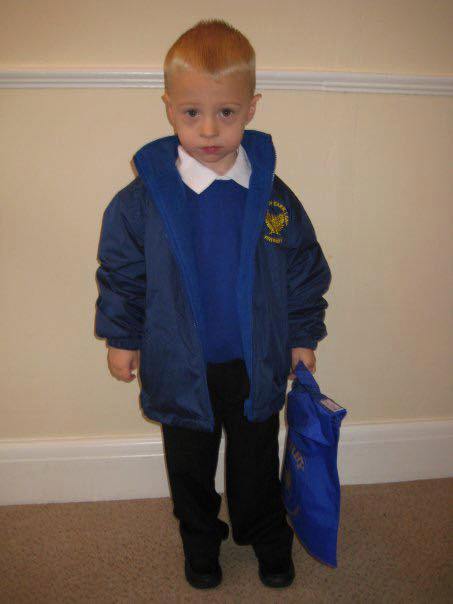
Mike, seen at a younger age, was diagnosed with autism at five years old. Today, he’s happily studying computer processing at a mainstream college
Food poverty-stricken kids
Yet sadly, some children aren’t so fortunate. At schools across the UK, pupils have been turning up hungry as their families struggle with Covid-fuelled food poverty.
“We’re having to be a kind of all-inclusive provision. Many students are coming in without breakfast so we’re having to provide that as well as lunch,” says TLG educator Deborah.
“We’re also considering, when they go home at the end of the day, is there going to be a meal to carry them through the night ready for the next day?”
Student Tyreece is among those who have received food parcels.
His mum Marie tells us she cried when her family received them, adding: “My anxiety got so bad I didn’t want to go near people.
“The food parcels and dinners helped. Before they arrived I was pacing myself to go out to get shopping but TLG looked after us as a family.”
Psychotherapist and UK Council for Psychotherapy (UKCP) spokeswoman Vanessa McHardy, who works with vulnerable children in schools, says food poverty has come into her sessions “more than ever before”.
“Children are worried about when and how they will eat,” she adds.
Some teachers have even had to provide clothing for disadvantaged pupils because the pandemic has left their parents jobless and broke.
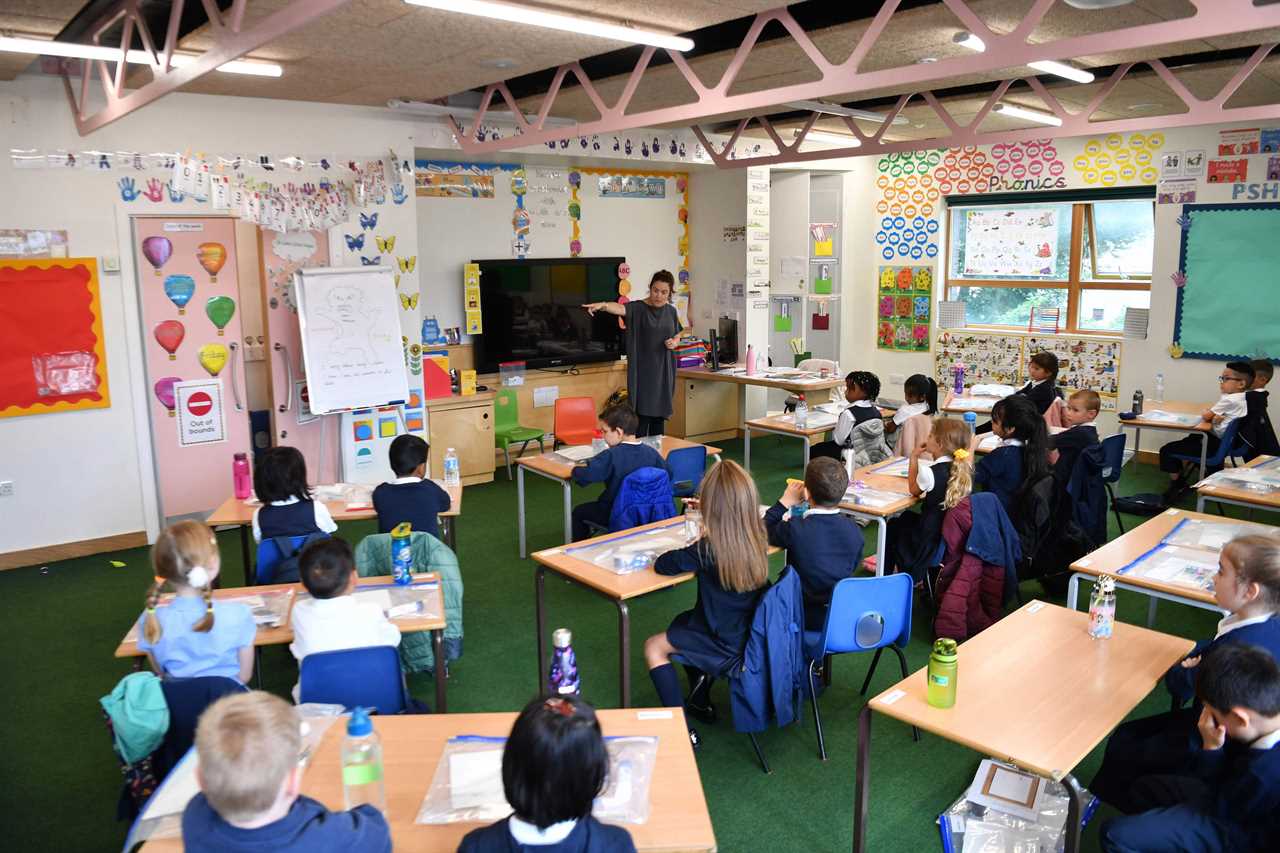
Year Two pupils listen to their teacher during their first day of school in East London on September 3
The Department for Education (DfE) has said it is “prioritising” children’s education and wellbeing.
A DfE spokesperson said: “We kept schools, nurseries and colleges open to vulnerable children during the lockdown period, and over 99 per cent of schools have been open every week since term began.
“We’ve also invested millions in support for the most vulnerable children throughout the pandemic, including those who have been or are at risk of being permanently excluded from school.
“We launched a £1billion support package to support pupils who need some extra help catching up and reengaging with school life as a result of the additional pressures we know they are facing at this time and our £8million Wellbeing for Education Return programme is helping school and colleges respond to pupils’ additional anxieties and worries.”
Psychotherapist Vanessa McHardy, who works with vulnerable children in schools, says food poverty has come into her sessions ‘more than ever before’
But with fears a soaring number of children are getting an “unsuitable” education at home, experts are calling for further, urgent measures to make Britain’s ‘invisible’ kids visible.
The LGA wants the government to introduce its proposed new duty on councils to maintain a register of children not in school.
It also wants parents to provide information if their child is not attending mainstream school, councils to be able to check a child’s home-schooling, and sufficient funding and resources for local authorities.
And as for children with SEN, Ms Spielman has called for urgent action from health and education services, so these youngsters can receive the high-quality education they deserve.
“Covid-19 has exposed an already crumbling infrastructure that fails to meet the needs of our most vulnerable children all too often,” she says.
For the schoolchildren still at risk of “slipping out of sight”, the consequences can be devastating – and life-changing.
It’s why Ms Longfield believes we must identify these children quickly and “do whatever it takes to keep them in school and on the radar”.
“We must not look back at the end of the Covid crisis at a group of vulnerable teenagers who fell out of society and ended up drifting into crime or unemployment,” she says.






















